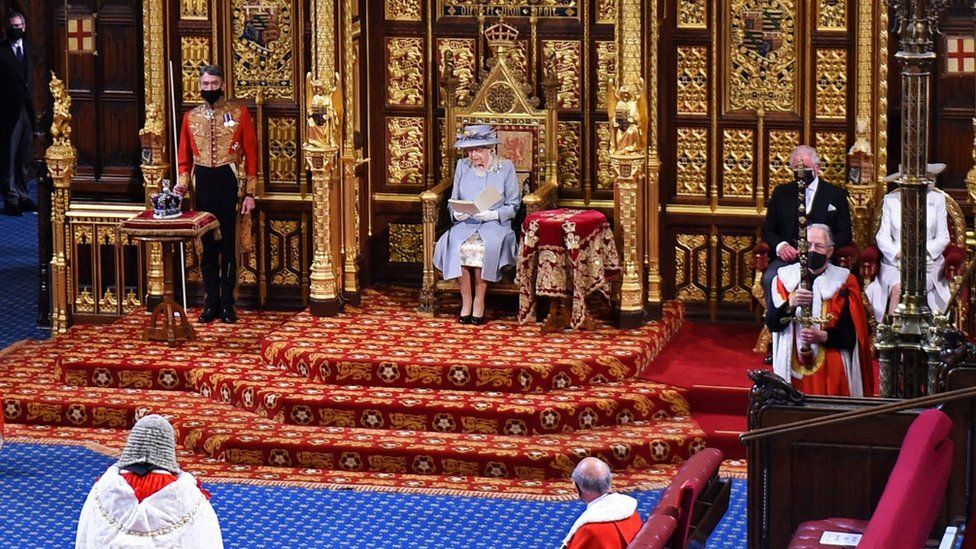Queen's Speech commits to Troubles legislation
- Published

The government is to bring forward legislation in the course of the next year to deal with legacy issues related to the Northern Ireland Troubles.
As expected, the move was signalled in the Queen's speech.
The mention was brief: "Measures will be brought forward to strengthen devolved government in NI and to address the legacy of the past."
Accompanying government papers said the new legislation will be set out in the coming weeks.
The papers stated: "The government is fully committed to introducing legislation to address the legacy of the Troubles in Northern Ireland and will confirm further details in the coming weeks.
"It is clear that the current system for dealing with the legacy of the past is not working well for anybody, with criminal investigations increasingly unlikely to deliver successful criminal justice outcomes and failing to obtain answers for the majority of victims and families.
"The government will introduce a legacy package that delivers better outcomes for victims, survivors and veterans, focuses on information recovery and reconciliation, and ends the cycle of investigations."
Based on details of the plan leaked last week, it is proposed that all prosecutions prior to 1998 and related to the Troubles will, in future, be banned under a statute of limitations.
Instead the focus will be on "information recovery" for families of those killed.
The government has started to brief political parties on the finer points of what is proposed.
Manifesto commitment
It faces strong opposition to what is generally viewed as an amnesty which will apply across the board to former paramilitaries as well as those who served in the security forces.
Part of the government's motivation is a manifesto commitment to protect ex-soldiers from re-investigation and prosecution.
Speaking before a meeting with the Secretary of State Brandon Lewis, the Deputy First Minister Michelle O'Neill said the proposals were "an insult to victims"
The Sinn Féin politician added: "At its core this is about the British state closing down any prospect of a meaningful investigation of its role in the conflict."
The Justice Minister Naomi Long has also had talks with Mr Lewis.
She said the plan displayed "a callous and cavalier attitude" to victims and survivors.
It is not clear when exactly the government intends to bring forward the legislation or whether it will force it through in the absence of support from the parties and victims' groups.
What were the Troubles?
The conflict in Northern Ireland known as the Troubles lasted almost 30 years from the late 1960s, and cost the lives of more than 3,500 people.
Northern Ireland was created in 1921 and remained part of the UK, while the rest of Ireland became an independent state.
This created a split in the population between the unionists - who were mainly Protestants and were happy to stay in the UK - and nationalists, who were predominantly Catholics and wanted to join the new Irish state.
Many Catholics faced discrimination in jobs and housing and in the late 1960s began protests which were met with a crackdown from the Northern Ireland government, and led to the UK government to sending over troops in 1969.
They were largely welcomed, but later armed groups from both sides, like the Irish Republican Army (IRA) and Ulster Defence Association (UDA) began carrying out bombings and shootings.
Peace talks started in the early 1990s, and culminated in the signing of the Good Friday Agreement in 1998, which ended the worst of the violence.
Related Topics
- Published13 August 2019
- Published11 May 2021
- Published6 May 2021